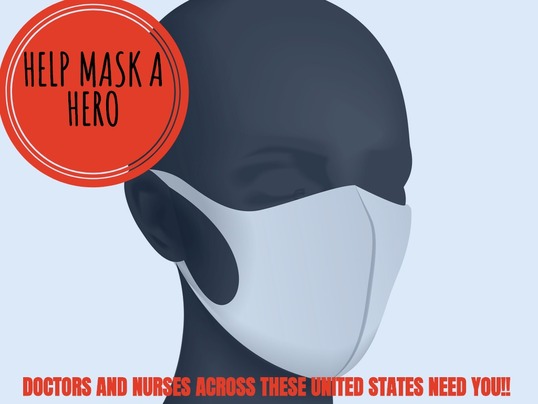|
By Attorney Kelly Jesson
Business owners around the country are starting to reopen their businesses up to employees and customers. However, regardless of government announced “phases,” businesses owe a duty to their employees and customers to keep them safe while on the premises. Lawsuits are starting to pop up, according to Market Watch. What can you do to limit your potential liability? Businesses should follow healthcare and government recommendations, such as wiping down surfaces, frequent hand washing, wearing masks, socially distancing, etc. These recommendations sometimes change, so business owners should stay abreast of updates. Keeping your employees from getting sick on the job in the first place is key: in a worker’s compensation case, all the worker has to do is prove they were injured on the job and there’s a causal connection between the two. For example, a grocery store cashier may have a claim due to exposure to the public. A worker’s compensation claimant does not need to prove that the business was negligent. For businesses that don’t have a large volume of public traffic (such as law firms), owners may ask patrons to sign a document before coming into the premises stating that they do not have COVID-19, are experiencing no symptoms, and they have not been around anyone with COVID-19 or who has otherwise been experiencing symptoms. While patrons can, of course, lie on these forms, at least it’s one additional step that business owners can show that they are taking to protect their employees and other customers. Showing that you are taking the necessary steps to keep people safe is important in defense of personal injury lawsuits, where the plaintiff has to show not only causation (that they caught COVID-19 at your business) but negligence (that you failed to act with reasonable care). A defense to a negligence action is “assumption of risk.” Some business owners may ask patrons to sign waivers of claims, saying that the patron is “assuming the risk” of contracting COVID-19 by coming to their establish. For example, someone who voluntarily eats at a restaurant or goes to a nail salon knows that there is a risk that they may be infected, and a business is not guaranteeing 100% that they will not be infected, because there’s no way to do that. Governor Cooper provided business owners with extra protection a couple of weeks ago when he signed the Coronavirus relief bill. The act provides for limited liability for businesses deemed “essential” under the Governor’s prior stay-at-home order. If an employee or customer gets COVID-19 from spending time at an essential business, the business is not liable for damages unless it is “grossly negligent” or worse. Gross negligence is a higher standard than simple negligence. Instead of a plaintiff showing the absence of reasonable care in a negligence lawsuit, a plaintiff would have to show the conscious disregard for reasonable care to prove that a business was grossly negligent. While essential businesses should be comforted by this law, we are of the opinion that this should not change how they do business. In fact, if they consciously fail to abide by social distancing and cleaning protocols, they could arguably be grossly negligent. If you have any questions about how to prepare your business for reopening, give Jesson & Rains a call!
0 Comments
By Associate Attorney Danielle Nodar
During this time of uncertainty, people may question whether they have their affairs in order to better protect themselves, their loved ones, and their assets in the event that a worst-case scenario occurs such as incapacity brought on by illness or death. Below is a short list and description of important documents that can help complete an estate plan. The documents that deal primarily with distributing assets at death are a will or a revocable living trust. The best type of document for a given individual depends on a variety of factors such as family situations, the type or amount of assets, and overall goals for estate planning, but both documents allow you to have control over who will be responsible for carrying out your final wishes and ensuring that your assets are distributed to the beneficiaries you have named in your documents. For parents, there are also important decisions relating to caring for your children if you pass away. Unless you have a terminal illness, the only way to name a guardian for your children in North Carolina is to do so in a will. When appointing a guardian for a minor, the court will give preference and priority to the person named as guardian in a will. By law, a child can inherit property outright and with no strings attached upon reaching the age of eighteen, regardless of the amount or type of property. With proper estate planning, your will or living trust can outline specific age restrictions or conditions on when your child can inherit your property while ensuring that all expenses relating to your children’s health, support, maintenance, and education are taken care of by a trustee. A durable power of attorney allows you to name an agent to act in your place and make financial, business, and legal decisions if you ever become incapacitated (i.e. unable to handle your affairs). In the absence of naming an agent, a loved one would have to petition the court to be appointed as your legal guardian. The guardianship process is much more cumbersome, time-consuming, and costly than executing a durable power of attorney in advance. A health care power of attorney allows you to name an agent to make medical decisions on your behalf in the event you cannot speak for yourself. This document is not necessarily an end-of-life document, as it can apply in any situation where you are unable to communicate your wishes to a physician, such as being under anesthesia. You may give your agent full authority over decisions relating to your physical and mental health or limit your agent’s authority by providing explicit instructions in this document. An advance directive, also known as a Living Will, is an end-of-life document where you will state under what conditions and terms you do not want to be kept on life support such as a ventilator, artificial nutrition, and artificial hydration. In the absence of a Health Care Power of Attorney or an Advanced Directive, North Carolina law sets forth an order of priority (family members) as to who can consent to medical treatment on your behalf in the event you become incapacitated. This can cause problems for people with interesting family situations or no family at all. There is no default decision maker under North Carolina law for business, financial, and legal decisions, so a durable power of attorney is one of the most important estate planning tools we draft. With all of these documents, timing is everything, as the signer must have capacity at the time of signing. You cannot “get power of attorney over” someone. If you are interested in discussing your estate planning goals or needs, please contact Jesson & Rains. By Attorney Kelly Jesson
It’s hard to think about celebrating small businesses this month when so many are suffering due to coronavirus-related closures and illnesses. During this time of crisis, we’re right here with you, navigating these unusual waters. We thought this would be a great time to feature one of our clients, Help Mask A Hero, who saw a life-or-death need and immediately sprang into action to fill the gap! Help Mask A Hero, Inc., is a North Carolina non-profit corporation, with its 501(c)(3) status pending. Founded by Charlotte’s own Dr. Lakesha Legree, owner of Elev8 MD Wellness Center, PLLC, and several other anesthesiologist colleagues, Help Mask A Hero uses donations to purchase coveted N95 masks to ensure that our frontline healthcare workers are receiving the PPE they need to treat COVID-19 patients AND stay healthy themselves. Help Mask A Hero also accepts donations of masks and other protective equipment. Help Mask A Hero has been featured all over major national news channels. We are so proud to serve them! If you’d like more information, or to donate yourself, please visit: https://helpmaskahero.com To honor our healthcare workers, we are offering a discount for those who need their estate planning documents drafted. Please give Jesson & Rains a call for more information! When considering the emergency law that Governor Cooper just signed Monday, most North Carolinians are excited about the $1.6 billion relief package that will go to heath, education, and small businesses.
However, attorneys (and their clients) are the most excited about video witnessing and notarization! To deal with COVID-19 and social distancing concerns, documents can now be notarized and witnessed through video conferencing software like “Zoom” and “GoToMeeting.” Unfortunately, the emergency law did not do away with the requirement that some documents be an “original” (with a “wet” signature), so the procedure for will signings is a little clunky, requiring multiple originals to be mailed back and forth. Here’s a breakdown of the new law as it pertains to video notary and witnessing:
The witnesses’ and notary’s acknowledgements must contain special language in light of the emergency law, so do not try this yourself at home! If you need assistance, give Jesson & Rains a call. |
Subscribe to our newsletter.AuthorKelly Rains Jesson Categories
All
Archives
July 2024
|
|
SERVICES |
SUPPORT |
©Jesson & Rains, PLLC ALL RIGHTS RESERVED.





 RSS Feed
RSS Feed

